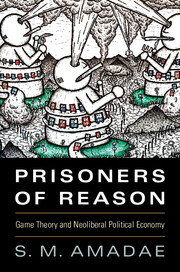12 - Pax Americana
from CONCLUSION
Published online by Cambridge University Press: 18 December 2015
Summary
I have, therefore, chosen this time and place to discuss a topic on which ignorance too often abounds and the truth too rarely perceived. And that is the most important topic on earth: peace. What kind of peace do I mean and what kind of a peace do we seek? Not a Pax Americana enforced on the world by American weapons of war. Not the peace of the grave or the security of the slave. I am talking about genuine peace, the kind of peace that makes life on earth worth living, and the kind that enables men and nations to grow, and to hope, and build a better life for their children – not merely peace for Americans but peace for all men and women, not merely peace in our time but peace in all time.
John Fitzgerald KennedyThroughout the twentieth century, despite the shadow cast by US capitalism and dominion, Americans stood confident that their country was grounded by values and commitments that rejected tyranny and oppression in favor of the impartial rule of law and individual self-determination. Progress toward realizing these values was uneven and halting. But for American citizens, hopeful immigrants, and foreigners inspired by these ideals, the US Constitution and Declaration of Independence perpetuated the Enlightenment ethos of self-emancipation. A Pax Americana could be envisioned to be inseparable from the American Dream of inclusive wealth creation “with opportunity for each according to his ability or achievement.”
It goes without saying that one person's claim to freedom cannot, without contradiction, involve denying another's equal claim. However nostalgically one may remember the moral high ground of World War II or the prolific power of mid-century “made in USA” industry, the twenty-first century social contract is blatantly antithetical to an inclusive vision for prosperity. Strategic rationality and the Prisoner's Dilemma model for social relations that is its central logical paradox recommend both political domination and economic chicanery.
Game theory is ubiquitous. It dominates academic curricula and economic models, and its application spans market practices, institutional design, and public policy implementation. Strategic rationality is so much part of our contemporary worldview that it is intertwined with the evolving meaning of the word “cynical.” Game theory, like late twentieth-century cynicism, has three moments.
- Type
- Chapter
- Information
- Prisoners of ReasonGame Theory and Neoliberal Political Economy, pp. 285 - 296Publisher: Cambridge University PressPrint publication year: 2016



